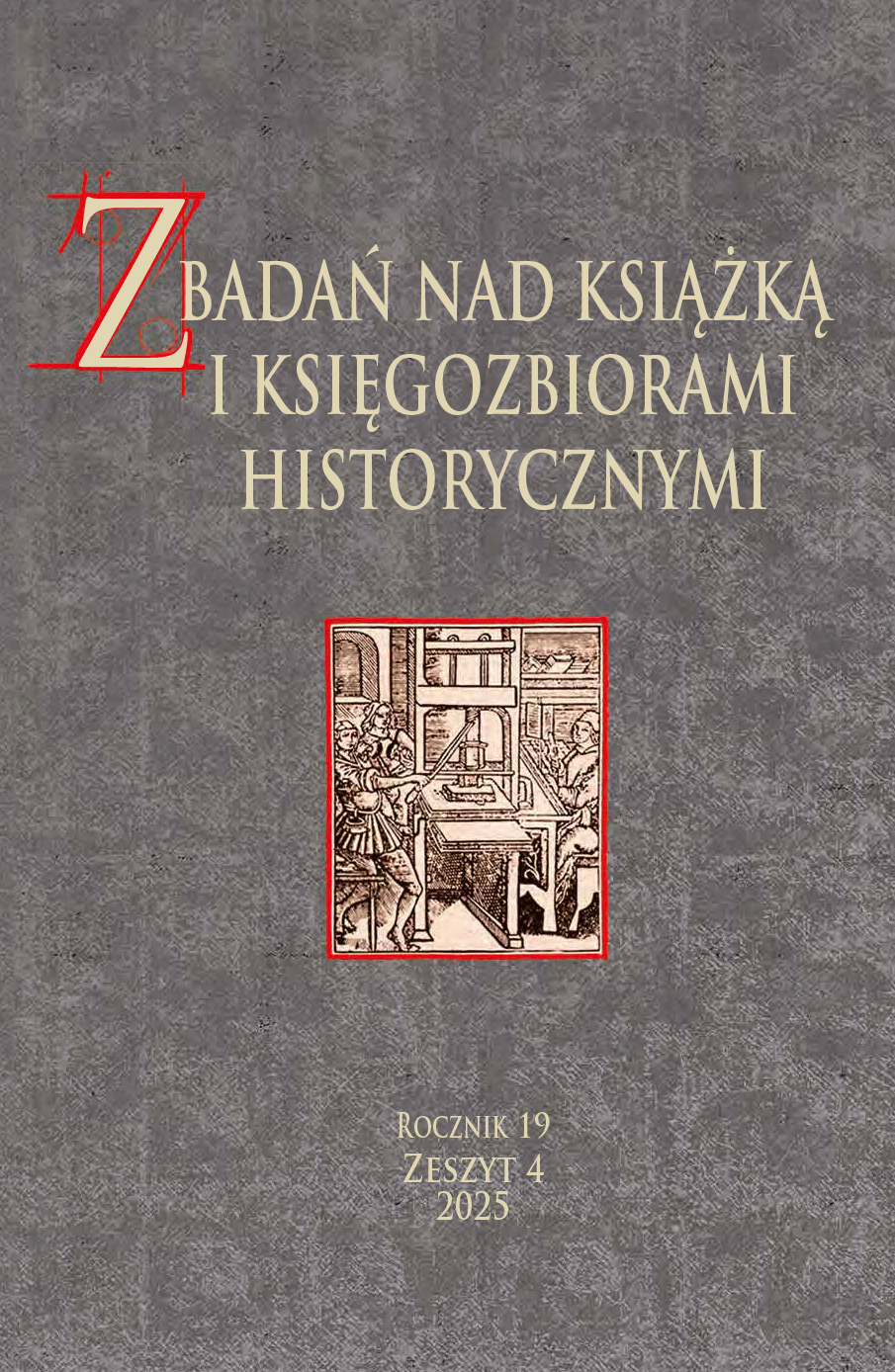The Polish Sejm Debating over a Work of History: The Case of ‘De bello Moschovitico’ by Reinhold Heidenstein, in 1587
DOI:
https://doi.org/10.33077/uw.25448730.zbkh.2015.144Keywords:
interregnum of 1587, censorship, historiography, Heidenstein, Reinhold, King Stephen Bathory of Poland, Convocation and Election Sejm, Zamoyski, Jan, the Zborowski brothersAbstract
The article deals with the reaction of the Polish nobility, convened during the interregnum after the death of King Stephen Bathory to elect the new monarch, to the book De bello Moschovitico commentariorum libri VI by Reinhold Heidenstein, which treated on recent historical events. Heidensteins work conveyed the offi cial views of the ruling circles, and Chancellor Jan Zamoyski was personally engaged in its preparation. However, the opposition was of the opinion that in combination with preventive censorship the book was supposed to impose upon the public a vision of the past favourable to the governing elite, e.i. a biased one. This episode, exceptional in the history of the Polish-Lithuanian Commonwealth, did not result in the confi scation of the book. The anti-Zamoyski faction failed both to bring about the election of their candidate to the Polish throne, and to persuade the Sejm to delegalize censoring historical works. Nevertheless, the affair resulted in refraining by the ruling circles from such actions during the reign of the next king, Sigismund III Vasa. Most probably, Jan Zamoyski, who soon after the election found himself in opposition to the throne, himself a master of political propaganda, decided that it would be much more effective to manipulate public opinion with anonymous effemeral prints.






